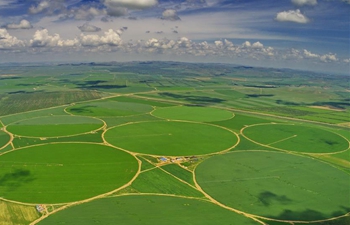RIO DE JANEIRO, Jul. 25 (Xinhua) -- Brazil's population is gradually aging and the country is expected to have more elders than children by 2040, local statistics agency said on Wednesday.
According to Brazilian Institute of Geography and Statistics (IBGE), the share of people older than 65 in Brazil will rise from the current 9.2 percent to 17.4 percent in 2040. At the same time, the share of children up to 14 years old, which is currently 21.3 percent, will fall to 16.8 percent by 2040.
By 2060, the share of elders in Brazil is expected to reach 25.5 percent, over a quarter of the entire population, while the share of children up to 14 is expected to have fallen to 14.7 percent.
This is the result of lengthening lifespan and a fall of fertility rate in Brazil. Fertility rate in Brazil is currently at 1.77 children per woman and is expected to fall to 1.66 children per woman by 2060.
Life expectancy is currently 72.7 years for men and 79.8 years for women, and is projected to rise to 77.9 years for men and 84.2 years for women by 2060.
The median age of the Brazilian population, which is now 32.6 years of age, is expected to surpass 40 years by 2037 and reach 45.6 years by 2060.
The gradual aging of the population brings challenges to the country, as there will be a smaller economically active population with more retired citizens.
According to IBGE, for every 100 people in working age in Brazil, there are 44 dependents who are either younger than 14 or older than 65. By 2035, this dependent-worker ratio is expected to rise from 44 percent to 50 percent. By 2060, it is expected to reach 67.2 percent.
















